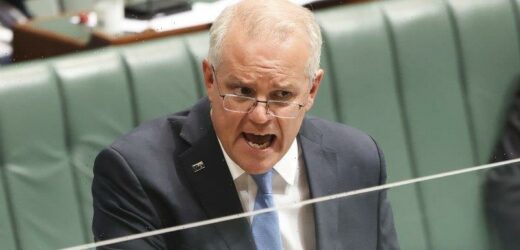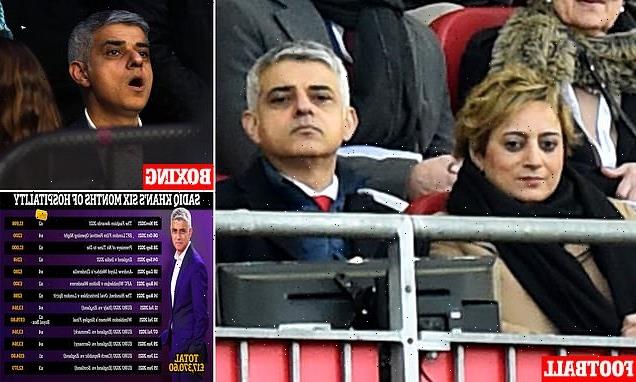For our free coronavirus pandemic coverage, learn more here.
The poet Susan Barba wrote recently of loving the old radiator in her basement, that ran on oil. She loves, too, the particular way that driving a car with a combustion engine feels: “the calibration of the pressure of your foot on the accelerator with the airflow into the engine, the mysteriously controlled continuous explosions”.
In 2019, it was all about the “quiet Australians”. But now Scott Morrison is shouting at us.Credit:Alex Ellinghausen
We often hear about the financial barriers that prevent us from changing our lives to fight climate change. Barba, committed to that fight, was making the point that there is an emotional side to our resistance as well – harder to talk about but important to consider if we are to grasp what is really going on.
Politics, as practised professionally, tends to struggle with emotion: where to put it, how to talk about it. When emotions appear they are rarely nebulous, strange and mixed – as emotions in reality tend to be. But emotion cannot be ignored entirely, so politicians and pundits instead attach it – in a linear way – to concrete policies. People are “afraid” of changes to franking credits. They are “angry” at kindness being shown to refugees.
Or it is transformed via focus groups into simple, sterile words that can be repeated ad nauseam to voters. It is worth noting that each of the past three winners of federal elections – Tony Abbott, Malcolm Turnbull and Scott Morrison – have put “stability” at the heart of their campaigns. This was partly in response to our excessive number of prime ministers – but it was also about change, and fear of change, and crisis, and low-level anxiety, and tiredness, and a thousand other things. It was a simple word slapped on an ungovernable abundance of emotions.
This past week there was much discussion, online – and particularly in America – about the “vibe shift” now arriving; that moment when one set of things stops being cool and another takes over. Don’t worry if you’re not interested in the particulars (Red Wing boots are out, flash photography at parties is in), the most telling thing here is the phrase itself.
Illustration by Jim PavlidisCredit:
“Vibe” does not conjure up specific items so much as a general feeling. Such feelings are – as others have described at length – an increasingly important feature of our internet-dominated lives, in which emotions and atmospheres spread quickly across the world. There is good reason that cultural shifts are now described in such terms.
And so, while it might at first sound trivial, one of the most striking features of last week in politics was the clash of emotional atmospheres, as NSW and Victoria announced the removal of several pandemic restrictions. Singing and dancing were back! QR codes were mostly gone! Density limits were on their way out! These are real changes with real impacts on the way that people feel about their lives.
Once upon a time, Scott Morrison’s government would have focused its energies upon such news. But last week, it seemed instead to be committed to the manufacturing of quite a different vibe. The scare campaigns being rolled out, one after another, have variously been called out as a little desperate, or (not a trivial point) potentially harmful to our national interests.
But what was just as notable was the shift towards depicting a nation in which we were suddenly up against a series of crises, with some vague and vibey sense of law-and-order/national security at their centre. Criminals had to be deported, firearms seized, China stood up to. Disaster was just one parliamentary vote away.
Scott Morrison is trying to shift the election campaign onto issues where he believes Anthony Albanese is weak, national security and law and order.Credit:Alex Ellinghausen
This is, intriguingly, almost the opposite of what Morrison promised at the last election. Then, Morrison promised quietness. He was not planning to do much, and we would not have to pay attention. He was making politics as small as possible. Now, he is shouting at us. He is making politics as large as it can be. He is attempting to usher us into a national mood defined by the presence of crisis.
The reason is obvious: he needs our attention as he attempts to reframe a political debate he has recently been losing. As with so much in politics, this makes some kind of sense in political terms but absolutely none in any other context. Too much is being sacrificed. The safety of transgender children. The gains from an acknowledged bipartisanship on China. All for the supposed political win of being able to talk about topics Morrison believes give him an advantage.
I say “supposed” because, while it is conventional wisdom that choosing the battleground is the most important factor in the battle, I have begun to wonder if this is too simplistic a political calculus. In 2019, the political landscape was waiting for Morrison: he simply took his place, promising even more calmness to an already calm nation. In 2022, he is having to create a new landscape, in order to find a new place for himself. But what if voters don’t like this new place, this land of roiling emotions and constant danger? What if we prefer the land of singing and dancing we have just been allowed to rediscover? What if Morrison has picked his topics right, but the “vibe shift” wrong?
In waiting until the last moment to call an election, Morrison is, in part, waiting for something to happen. It is still possible that events arrive that make his confected approach seem an appropriate and organic approach to the world as it really is. After all, he just got one, in the form of the speech from ASIO chief Mike Burgess warning of foreign interference in our elections. The Chinese laser incident was perhaps another, and Russia might yet provide one more.
For what it’s worth, the man who coined “vibe shift” has not yet entirely made up his mind about what the next vibe looks like. And fair enough: we are talking about nebulous, strange, and mixed emotions, that then find concentrated expression in this object and that object – or, for our present purposes, this piece of political rhetoric or that. Nobody really knows how things will look, not even in three months’ time. Still, one wishes our politics occasionally possessed even a hint of the complexity of emotion itself.
Our Breaking News Alert will notify you of significant breaking news when it happens. Get it here.
Most Viewed in Politics
From our partners
Source: Read Full Article





